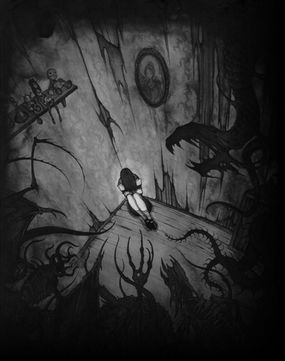Choosing counselling / psychotherapy compared to medication
It is still the case that many people's first experience of treatment for depression is being prescribed anti-depressant medication by their GP. Often people take anti-depressants without having a good sense of the potential drawbacks to treatment with medication alone, some of these potential drawbacks are:
An overall (meta) analysis of 100,000 pieces of depression research by the Nevada School of Medicine recommended that the first-line treatment for depression should be appropriate psychotherapy, even when the depression is severe.
- Treatment with medication alone is effective for only 1/3 of people. A further 1/3 experience some benefit, whilst 1/3 receive no benefit at all. Most major research studies have found psychotherapy and counselling to be equally or more effective than treatment with medication alone.
- Treatment with medication alone has a high relapse rate. Those who take only medication have an 80% chance of relapsing to experience another major depressive episode. Various forms of psychotherapy and counselling have consistently been found to have a much lower relapse rate than medication alone, even once treatment has finished. (In comparison, many people take anti-depressants long term.)
- Chemical imbalances in the brain are the result of depression, not the cause. Depression is often caused by how we are navigating stressful life situations, unresolved emotional dilemmas, or relationship difficulties or losses. Focusing on brain chemistry makes it harder for us to see the links between the circumstances of our life, and our mood. It also makes it harder for us to empower ourselves to work with our own depression by beginning to live our life differently.
- Many people judge the side-effects of medication to be unpleasant enough to stop taking them. Ask your doctor about the frequency and severity of medication side-effects. In judging if the side-effects are worth it for you, you could also ask your doctor about the NNT (number needed to treat) of the medication they are proposing to you. This number tells you statistically how many people need to be treated with this medication in order for one person to be cured.
An overall (meta) analysis of 100,000 pieces of depression research by the Nevada School of Medicine recommended that the first-line treatment for depression should be appropriate psychotherapy, even when the depression is severe.
Effective Psychotherapy and Counselling for Depression
|
Whilst many different forms of psychotherapy and counselling (talking therapies) can be effective for depression, they are not all the same. Rather than try to explain the differences between the literally thousands of different types of talking therapy (the range of which can confuse even mental health professionals!) let's talk about two major types: depth therapies and cognitive behavioural therapy (CBT).
A short course of CBT is what you are most likely to receive for depression via the public health system in New Zealand. Until relatively recently research has suggested that it may be the best option for depression because it can be effective in a short time period (often six sessions or less) and can even be delivered via a computer program because it's highly standardised. CBT therapists will, for example, challenge their clients to be less pessimistic in their thinking, and to change their behaviour by getting physically more active and by re-engaging socially. It's a cost effective option for a public health system - as long as you don't count the research that points out that people have a high relapse rate after doing CBT. Depth therapy may or may not last for more sessions than CBT, but in contrast it does try to get to the root of the unique emotional disturbance that is at the heart of an experience of depression, rather than just managing your symptoms. At Lucid Psychotherapy & Counselling, we practice mindfulness based psychotherapy and counselling, relational psychotherapy, ecotherapy, psychodynamic and psychoanalytic psychotherapies, and intensive short term dynamic psychotherapy (ISTDP), which are all forms of depth therapy. Doing a form of depth therapy can be more than just removing symptoms, it can be profound and life changing. If you're interested in the recent research that has made the NHS (UK public health system) rethink it's over-reliance on CBT compared to depth therapies, have a look at this great summary in the guardian, here. |
|
Specialty Areas |
Online BookingBook my first session.
If there are no bookable services showing via the online booking website, this means we currently have a waiting list for new clients. Please give us a call or email if you would like to add your name to it. |
Lucid Psychotherapy and Counselling, Christchurch provides affordable and effective individual psychotherapy, counselling, Intensive Short Term Dynamic Psychotherapy (ISTDP), ecotherapy, treatment for depression, stress, panic and anxiety disorders, and mindfulness mentoring, servicing the area of Ōtautahi Christchurch, Hokitika, Māwhera Greymouth, West Coast, Aotearoa New Zealand. We also offer online therapy sessions using video i.e., Zoom (telehealth). © 2015-2024 Lucid Psychotherapy & Counselling.
